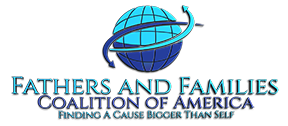Deployed Dads: Strengthening Military and Veteran Fathers, Families and Communities. The timely and relevant article serves as a starting point for assisting military and veteran families in accessing available resources to overcome multiple barriers to successful reintegration. Read More
Posts
| Evaluation of the Marriage and Family Strengthening Grants for Incarcerated and Reentering Fathers and their Partners, 2015 |
| As part of the Marriage and Family Strengthening Grants for Incarcerated and Reentering Fathers and their Partners (MFS-IP), twelve grantees received funding from the Office of Family Assistance to implement activities to support and sustain marriages and families of fathers during and after incarceration. Grantees also provided reentry, parenting, education, and employment services. The evaluation includes publications such as research briefs, reviews of promising practices, and implementation data. |
Website Link: https://peerta.acf.hhs.gov/content/evaluation-marriage-and-family-strengthening-grants-incarcerated-and-reentering-fathers-and
Let's Alleviate Human Suffering | A Plan for Reducing Poverty and Restoring the American Dream
Fathers & Families Coalition of America has long championed to alleviate conditions that reduce opportunities for children, parents, families and building healthy communities. Dr. Ronald B. Mincy, Sr., introduces an opportunity for a bipartisan plan to press the reduction of poverty. Before you read on consider the following: The average age of a homeless person is 9 years old in America. More than 3.5 million people are homeless every night, and 1.35 million are children. More than 30 percent of homeless families have an open case for child abuse or neglect. Of the 31.1 million people living in poverty, more than 12 million are children. Now is a time for coming together and reduce the devastation of poverty in America
"Twenty five years, I have been convinced that we will never reduce poverty and increase opportunity in America unless we squarely addressed the adverse employment and earning patterns among less educated men. These patterns are associated with high rates of incarceration, low rates of marriage, and high rates of non-marital births. My work on reducing poverty has focused on reversing these trends ever since. Until my most recent book, Failing our Fathers, I was, unapologetically, focused on reducing poverty and increasing economic well-being among African Americans for whom these trends were and remain the most disappointing. Now however, these negative trends have become widespread across the general population. Increasing rates of incarceration, reduced marriage rates, and increasing numbers of non-marital births are becoming commonplace among less educated young Whites as well. Although these trends and consequences still are most severe among African Americans, some of our nations’ most prominent poverty scholars, policy researchers, and policy makers, now agree: reducing poverty and increasing opportunity in America requires that we address the needs of young, less educated men.
The result of a bipartisan working group convened by American Enterprise Institute and the Brookings Institution work will be released at a press conference at the National Press Club on December 3rd (go here for detailed information). The report highlights the key features of poverty and diminished economic opportunity in America today.
Through thoughtful leadership, innovative policies, support for emerging programs and proven models to support children, mothers, fathers, individuals and communities, America can be a better nation for all residents. Children are the future of any community or nation. The investment into our future should examine and change the negative conditions of millions of children who will be our future as a nation. This is a very detailed report with twelve (12) concrete recommendations that needs champions to review the report and share with stakeholders inturn present to leaders (public, private and elected) to make a difference in the lives of millions. In brief, AEI/Brookings make twelve recommendations (each explained more fully in the report): To strengthen families in ways that will prepare children for success in education and work:
- Promote a new cultural norm surrounding parenthood and marriage.
- Promote delayed, responsible childbearing.
- Increase access to effective parenting education.
- Help young, less-educated men and women prosper in work and family.
To improve the quantity and quality of work in ways that will better prepare young people—men as well as women—to assume the responsibilities of adult life and parenthood:
- Improve skills to get well-paying jobs.
- Make work pay more for the less educated.
- Raise work levels among the hard-to-employ, including the poorly educated and those with criminal records.
- Ensure that jobs are available.
To improve education in ways that will better help poor children avail themselves of opportunities for self-advancement:
- Increase public investment in two underfunded stages of education: preschool and postsecondary.
- Educate the whole child to promote social-emotional and character development as well as academic skills.
- Modernize the organization and accountability of education.
- Close resource gaps to reduce education gaps.
In their final chapter, they discuss the costs of this comprehensive proposals, and how the nation might pay for this comprehensive approach to reducing poverty and enhancing opportunity. READ THE FULL 85 PAGE REPORT HERE FOR MORE INFORMATION CONTACT: Caitlin Burke at

